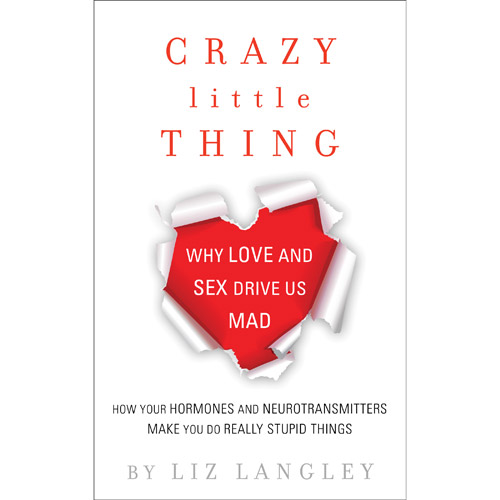So in the midst of a confusing time in her love-life, Liz discovers Why We Love: The Nature and Chemistry of Romantic Love by Dr. Helen Fisher. It completely changed the way she viewed relationships and the emotions involved in them. This set her off on her journey to dive on her own into the world of physiological reactions of the romantic sort.
She takes us along on her journey, introducing us to friends who've loved and lost, doctors who describe the brain's most ancient inner-workings in terms even a dummy can understand, and all the way to odd circus folk trapped in love triangles of the most dangerous kind. She travels around the country gathering pieces to her brain-teasing puzzle, and along the way shares with us her scientific findings. The book is written in a very narrative way and is reminiscent of a novel, spotted with facts on human biology. Liz doesn't dive too deeply into any particular element of psychiatry here, but rather gives us a laywoman's view, in terms that the average person can understand.
Crazy Little Thing is packed with useful(-less?) information and little side stories, such as the fact that it takes all of 1/5 of a second to fall in love. Liz highlights numerous odd stories of love and other mishaps as well, including the case of the Ache people of Paraguay, a culture who shares paternity with multiple fathers in order to raise a more well-rounded, stable and supported child. You'll certainly learn alot of information here that will be useful on Jeopardy someday. And if nothing else, the stories are entertaining and do help to bring the story along at points.
Still, something about the style just bothered me. The flow was hardly that, and the book quite jumped all over the place, covering dozens of subjects in a single chapter. Also, Liz's humorous interjections were often Family-Guy-esque references to something that seemingly had absolutely nothing to do with the topic at hand, and were very distracting. For example, after a paragraph quoting her friend Sherry speaking on something called the 'flavor of love,' meaning we are attracted to whatever type of love we first 'taste' in our early childhood, Liz interjects oddly:
"I don't want to interrupt her by piping up to say there used to be a show on TV called 'The Flavor of Love," in which a surprisingly large number of women were competing for the affections of musician Flavor Flav. One girl got so excited during Flav's equivalent of a rose ceremony that she defecated ont he staircase of the mansion. Perhaps in her infantile template love meant that someone would still care for you even if you couldn't control your poop reflex. And she was right -- for at least one more episode, I think."
Now, this was an example that was at least funny as well as had something to do with the topic at hand, but many of the references made next to zero sense. They were like alot of inside jokes thrown into the book. Without them, the book could've been 75% its length.
The book covers topics from why certain people are attracted to others, why it's so difficult to recover from a breakup, why breakups cause irrational behavior, and mourning the death of a loved one. I would've personally preferred the book to keep the stories to a minimum and include mainly anecdotes directly related to the science Liz was trying to convey. Without the largely distracting stories, this book could've been about 25% its length. We're getting down to a pretty short book, now that the distracting anecdotes and stories have been removed.



Thanks for the great review!
@awhirlwindlife. hope you like it! thanks for reading.